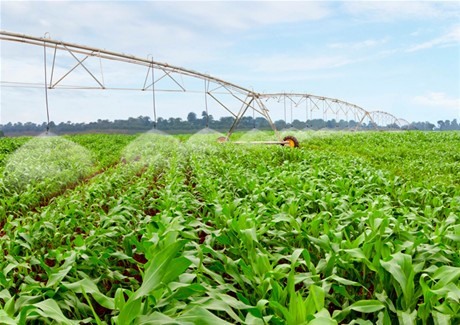 Society
Society

While positive results have been made in implementing agri-related public-private partnership (PPP) projects, challenges lie ahead in their development, said an expert.
 |
| The agriculture sector has benefited from public-private partnership (PPP) projects in terms of new technologies and stronger links between enterprises and farmers, but several challenges remain. — Photo baodauthau.vn |
HÀ NỘI – The agriculture sector has benefited from public-private partnership (PPP) projects in terms of new technologies and stronger links between enterprises and farmers, but several challenges remain, an expert said yesterday.
Nguyễn Đỗ Anh Tuấn, director of the Institute of Policy and Strategy for Agriculture and Rural Development, was speaking at an annual PPP taskforce meeting held in Hà Nội.
The meeting focused on Partnership for Sustainable Agriculture in Việt Nam.
Tuấn said the PPP projects have also made it easy for the Ministry of Agriculture and Rural Development (MARD) to detect obstacles in the agricultural production process and propose appropriate polices to remove them.
However, connecting domestic and foreign enterprises for expanding this model has proved quite difficult, Tuấn said, noting that most on-going projects were being implemented on a trial basis.
Limited capacity-building and experience in promoting the projects as well as the lack of an experts network were also obstacles, he said.
Phạm Thị Hồng Hạnh of the International Co-operation Department under MARD said Việt Nam was among 11 countries carrying out PPP projects in the agricultural sector with the participation of 20 leading corporations and companies all over the world.
These projects have helped push up productivity of key products, she said, but it was necessary to attract more investment into the agricultural sector, particularly foreign direct investment.
Several crop-based working groups have been set up since 2009, including those for coffee, tea, pepper, fisheries, fruit and vegetables, she noted.
She said the PPP projects can attract investment from enterprises and fulfill the target of increasing productivity and jobs by 20 per cent while reducing greenhouse gas emissions by 20 per cent.
Citing coffee as an example, Hạnh said the PPP projects have helped boost productivity by 17 per cent, increase farmers’ income by 14 per cent and considerably decrease greenhouse gas emissions.
Besides offering training for farmers on sustainable production, the projects have contributed to the establishment of a national database that will help all provinces engaged in coffee cultivation in the country.
But despite the increased connection between enterprises, projects and banks, investment in PPP projects was still modest, Hạnh said.
She suggested that ministries work on joint circulars detailing guidelines for the implementation of Government Decree No 15/2015/NĐ-CP, which aims to improving and streamline the legal framework for PPP projects.
Participants at the meeting agreed that the funding was a hinderance to the development of PPP projects as it currently relied mainly on State Budget.
They said despite the advantages of PPP, low profits and the longer time taken to recoup investments reduced investor interest in agriculture and rural areas. -- VNS




